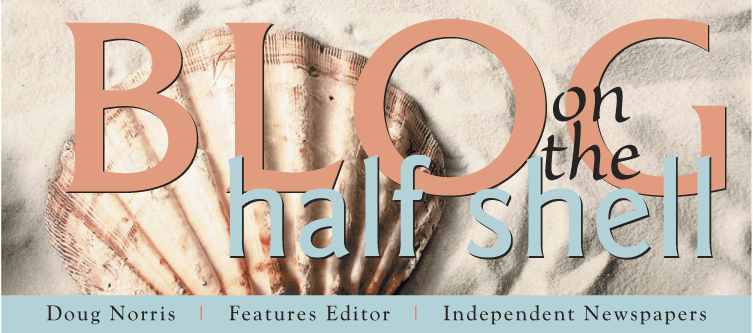We can only speculate what might have happened had the sea battle not begun at the cusp of a hurricane, or “the Great Storm,” as it was known. The weather, coupled with evasive strategy by Britain’s Admiral Howe, eventually forced the French fleet to depart Rhode Island for repairs in Boston – a major factor in dooming prospects for absolute American victory in the Rhode Island theater.
I’ll have more on Christian M. McBurney’s “The Rhode Island Campaign,” a scholarly account of the first joint French and American operation of the Revolutionary War, in this Thursday’s paper and online edition. Today’s blog is devoted to a few marks made in yellow highlighter, an accumulation of oddities and details that didn’t make it into the review.
One only-in-Rhode-Island moment: On Major General John Sullivan, commander-in-chief of the American Army, requesting provisions from Continental depots in Boston:
Sullivan refused only one item because Rhode Island had plenty of it – rum.
Speaking of rum, the demon drink was one of the few advantages that Providence held over Newport, which bested our state capital in population, wealth and culture:
…in one area, at least, Providence outdid its flashier sister city: in 1769, its thirty-one rum distilleries surpassed Newport’s twenty-six.
Some of the British turned out to be scarecrows. Or scarepatriots, as Colonel John Topham’s 1st Rhode Island State Regiment discovered when it inspected British fortifications on the island at Butts (Windmill) Hill:
Marching inland, he discovered amid the earthen walls and wooden barracks atop Butts Hill only dummy soldiers – red-coated uniforms stuffed with straw.
Straw soldiers weren’t the only trick the British had up their sleeves. The Navy had a ploy of its own:
Howe had brought with him three fire ships, which could be set ablaze and adrift when the tides and winds were right to crash into the huge, anchored French ships. [The names of the British fire ships were Strombolo, Sulphur and Volcano.]
The Aug. 10, 1778 edition of The Boston Independent Ledger, reporting on the war, declared “All eyes are now turned to Rhode Island.” (What a difference a couple of centuries make, give or take three or four decades. Now when all eyes turn to Rhode Island, they’re watching “Family Guy.”)
Some things never change: Colonel Laurens, riding on horseback from New York to Providence, reported that he had journeyed “in 48 hours over the worst and in some parts the most obscure roads that I ever traveled.” Welcome to Rhody, where some of our potholes are on the National Historic Register.
Rock stars are famous for not going on stage unless their demands for, say, a bowl of green-only M&Ms are met. With the baguette-mad French, apparently, the deal-breaker was bread, which was lacking in Rhode Island: According to Sullivan, French Admiral D’Estaing asked for 6,000 bricks “necessary for the construction of ovens to bake flour and make bread. Our existence depends on it.” And Laurens wrote, “The French squadron will want a great quantity of provisions whether they winter here or return to France. No biscuit is to be had here. Pennsylvania must furnish flour, and bakers should be employed [there] immediately.” Apparently, the French never got the hang of jonnycakes.
What is your favorite Rhode Island historical oddity?


No comments:
Post a Comment